Year 3-4
Wawa, Wumindjika
Hello, Welcome (in Taungurung)

Year 3-4
Wawa, Wumindjika
Hello, Welcome (in Taungurung)
A few small changes in the classroom communication means that this is the first one of the term. Welcome back! We are well into our learning for the term and doing awesome and amazing things.
A very HAPPY MOTHER'S DAY to all our Mums for this Sunday. We hope that you enjoy your special day with your family.
Following the Mother's Day Liturgy and Afternoon Tea, Mothers, Grandmothers and Special friends are invited to our annual pamper afternoon. Your special young ones can take you to each classroom and spend the afternoon being pampered. From 2.15-3.15.








This term, we are working on understanding emotions and what influences them. Through our lessons, students are learning how to recognise their feelings and the factors that impact them. We'll also be teaching students how to develop helpful thoughts to shift their mindset and bring themselves back to a positive space. By building these skills, students can better navigate challenges and develop emotional resilience.
These lessons are an important part of helping students grow into emotionally aware and resilient individuals. We encourage you to continue these conversations at home and support your child in practicing these skills.
This term we are focusing on writing narratives! We are learning how to create stories with interesting characters, settings, and plots. The students will practice planning, writing, and revising their own stories. We are learning how to identify the parts of a narrative in written text before structuring our own writing pieces.
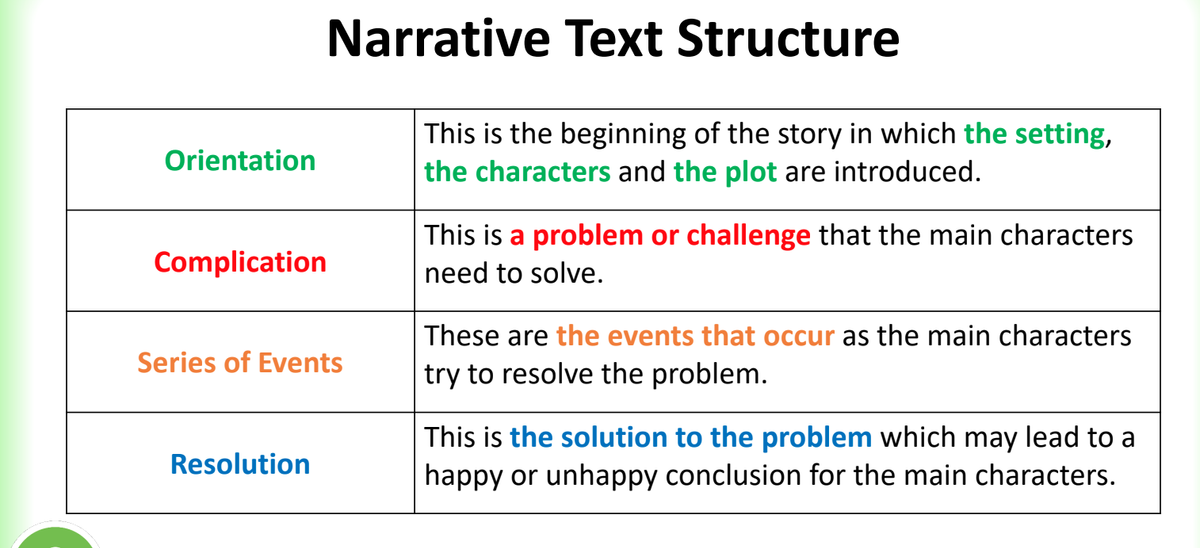

Whilst listening to narratives we took notes and then identified the orientation
(introduction), the complication (problem), the series of events and the resolution
(solution/ending). We are will be looking at developing our story characters and will learn to use powerful adjectives when describing them. We will be learning how to use speech marks accurately
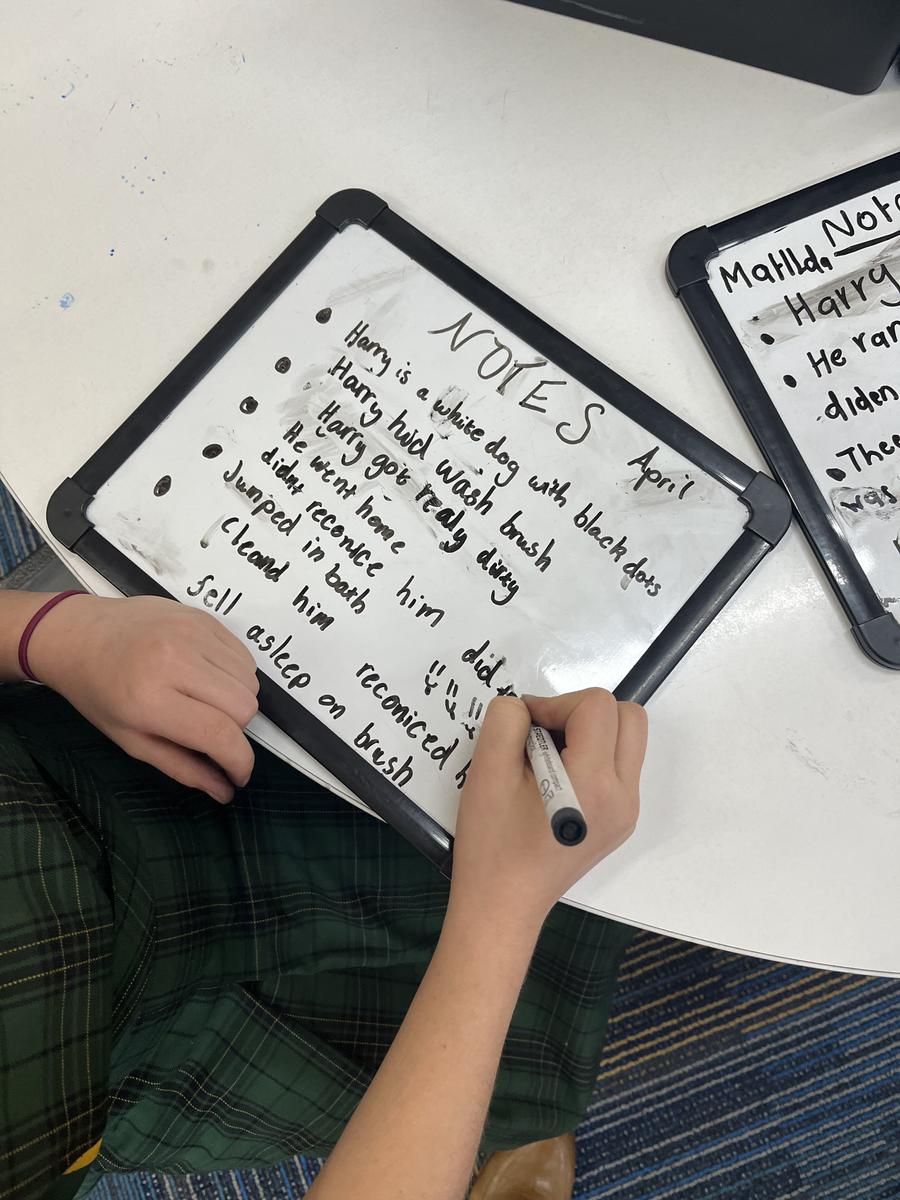
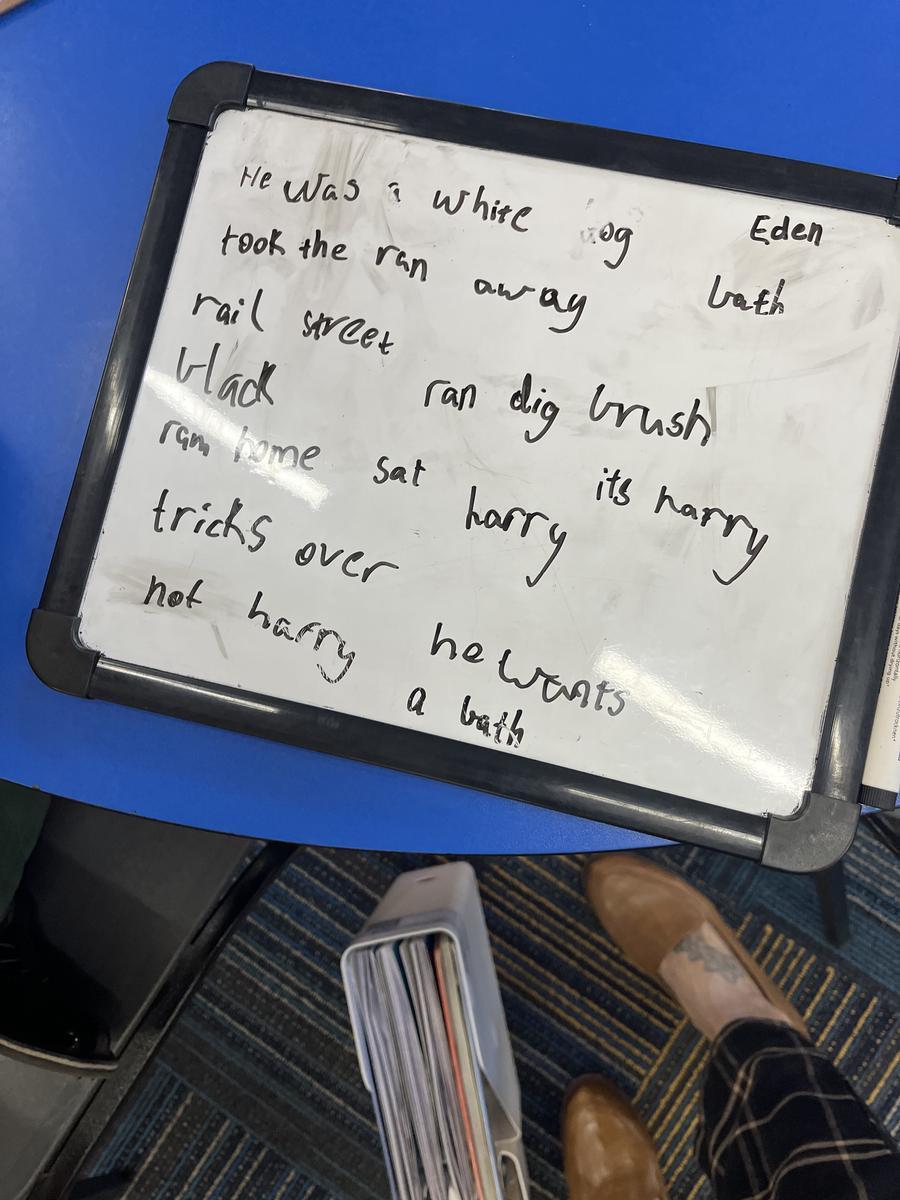
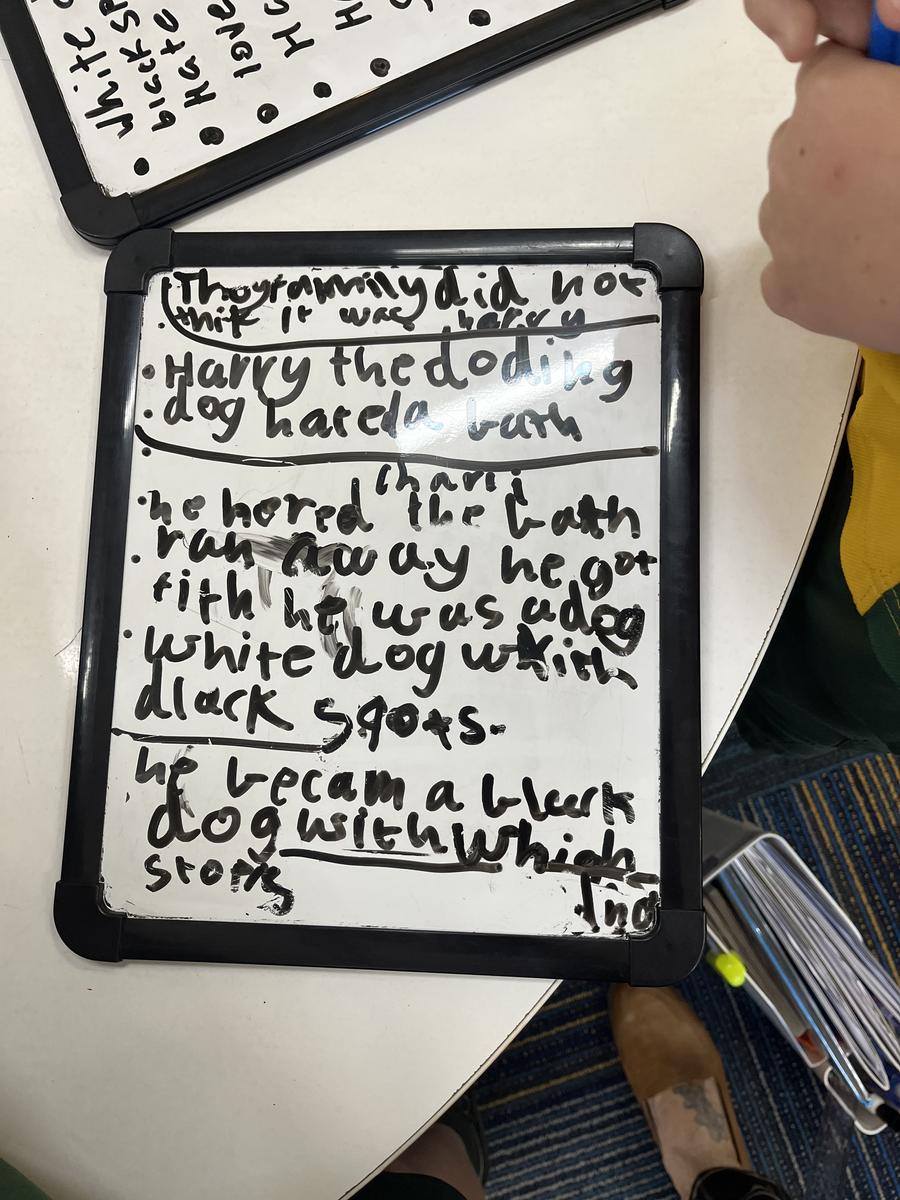
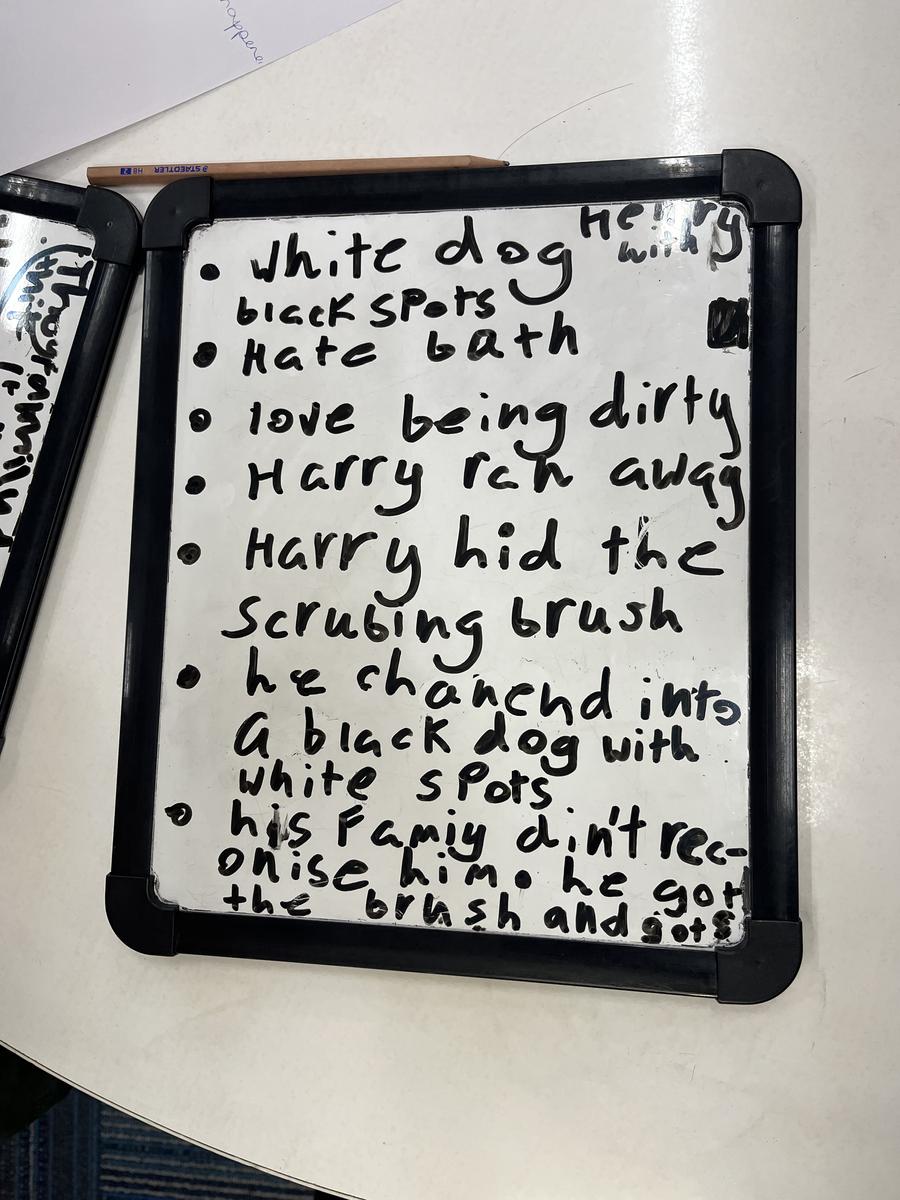




This term, we are focusing on developing reading stamina! We are working on increasing the time students spend reading independently, which helps them improve their focus and comprehension. We'll be using a variety of texts and genres to keep students engaged and interested. Your child will learn strategies to stay attentive and read for longer periods of time. You can support this at home by setting aside daily reading time for your child and encouraging them to talk about what they read.
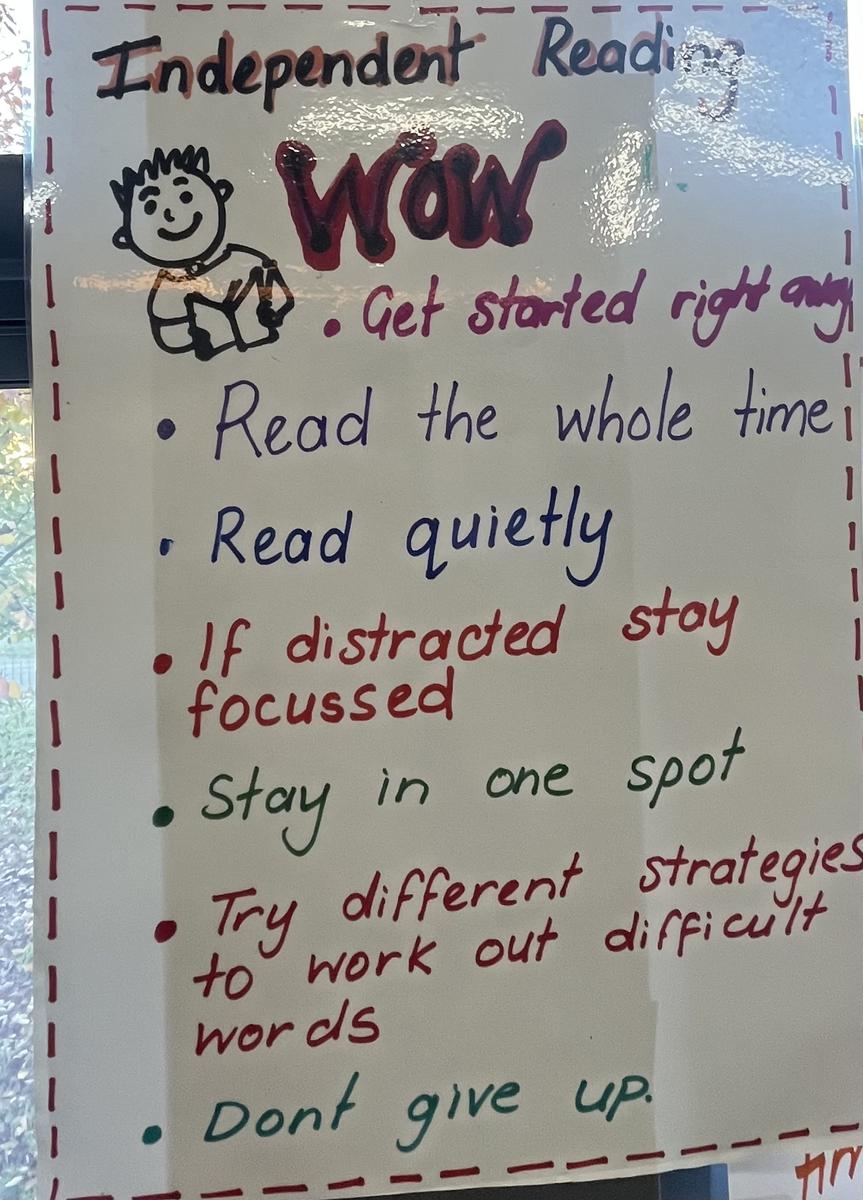
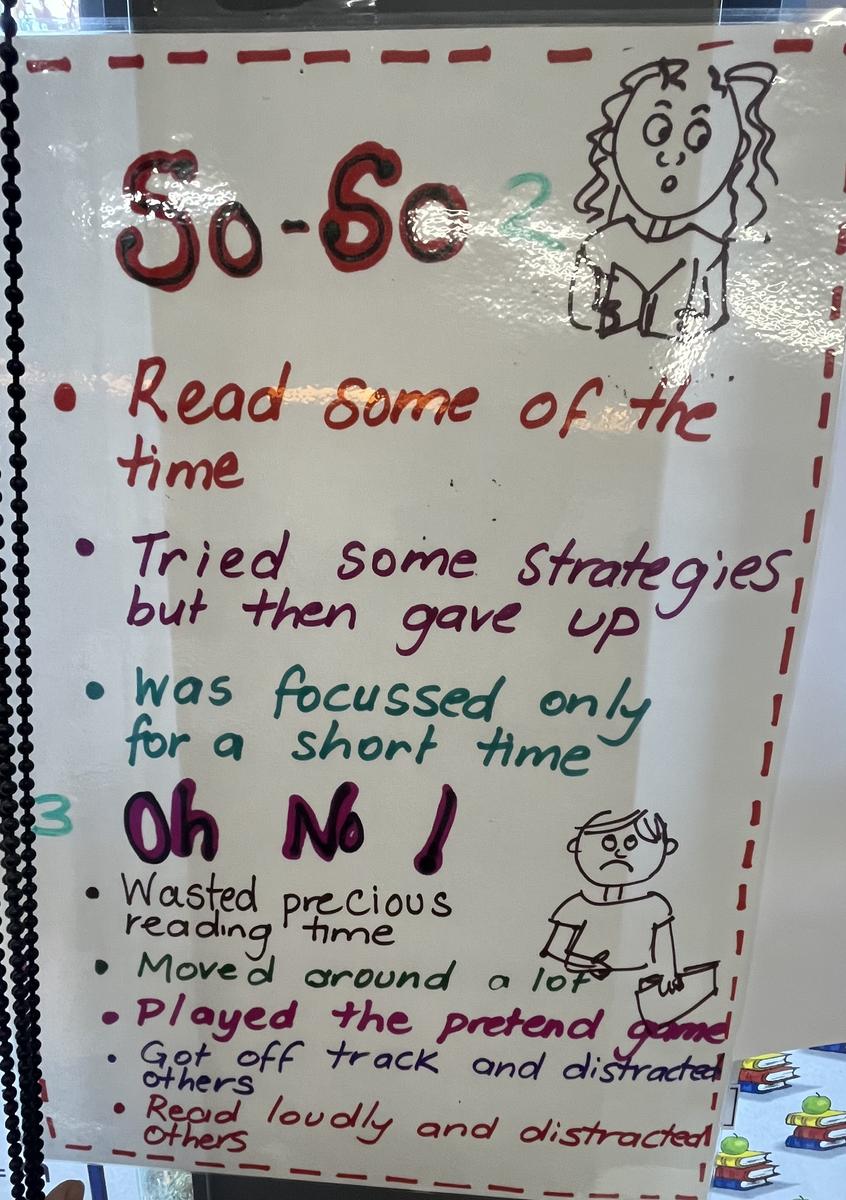
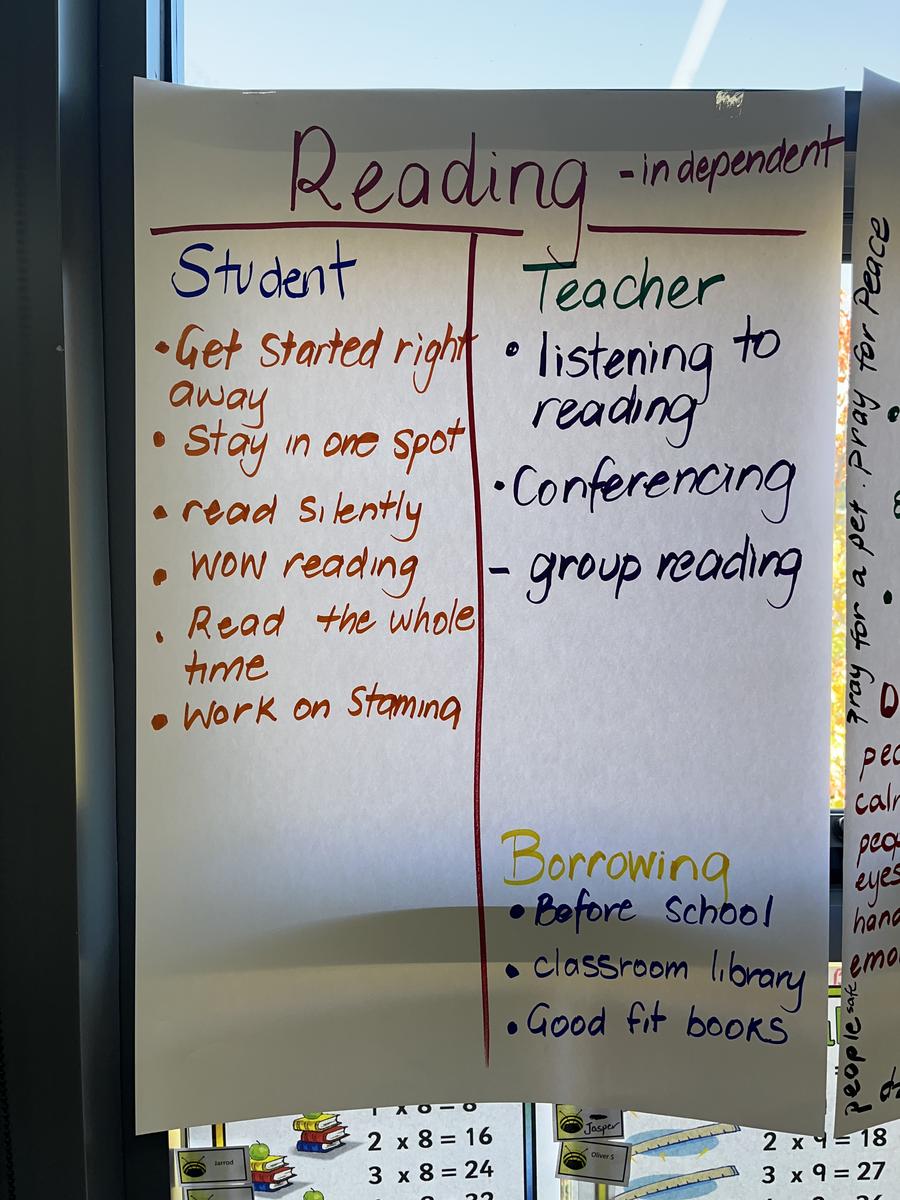



We are continuing to work on mastering spelling rules and sounds, as well as recognising tricky words! Students are learning phonics patterns and spelling strategies to help them with challenging words.
We'll practice through engaging activities and games that reinforce these concepts. As we work on spelling, students will gain confidence in reading and writing.
You can support your child by encouraging them to practice spelling at home and read a variety of texts. This helps reinforce the skills we're building in class.


This week your child will bring home a bookmark of the super 6 reading strategies. The Super 6 reading strategies help children improve their reading skills by focusing on six key areas of comprehension and engagement with text. These strategies guide students to actively think about and understand what they are reading, making the process more meaningful and effective. Here's how each strategy helps children to read:
Making Connections: Children relate the text to their own experiences, other texts, and the world around them. This helps them better understand and remember the material.
Predicting: By making predictions about what will happen next, children engage with the text and stay interested. It also helps them pay attention to details that might confirm or change their predictions.
Questioning: Asking questions about the text keeps children curious and focused. It encourages them to seek answers and think critically about what they are reading.
Monitoring: This strategy involves paying attention to understanding as they read. If something doesn't make sense, students learn to go back and clarify or reread the passage.
Visualising: Creating mental images of the text helps children comprehend and remember the story better. Visualising can also make the reading experience more engaging and immersive.
Summarising: Summarising helps children identify and focus on the main ideas and important details of the text. This strategy aids in comprehension and retention of information.
By using these strategies, children become more active readers who can better understand and engage with a variety of texts. The Super 6 strategies help build strong reading habits that support learning across all subjects. You may like to use these as a prompt when listening to your child read.
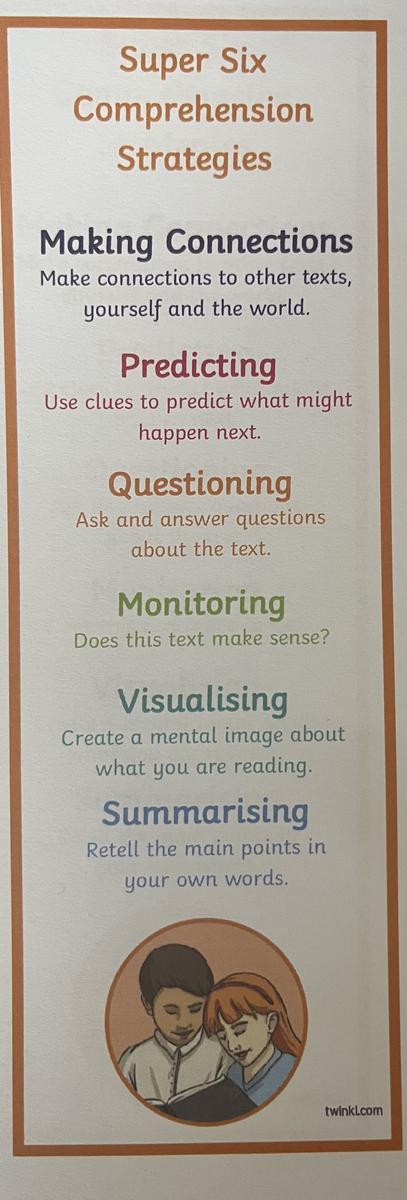



We're currently focusing on place value. This important maths concept helps students understand the value of digits in numbers and lays the groundwork for more complex maths skills. We'll be exploring how to read, write, and represent numbers in different ways, as well as practicing ordering and comparing numbers.

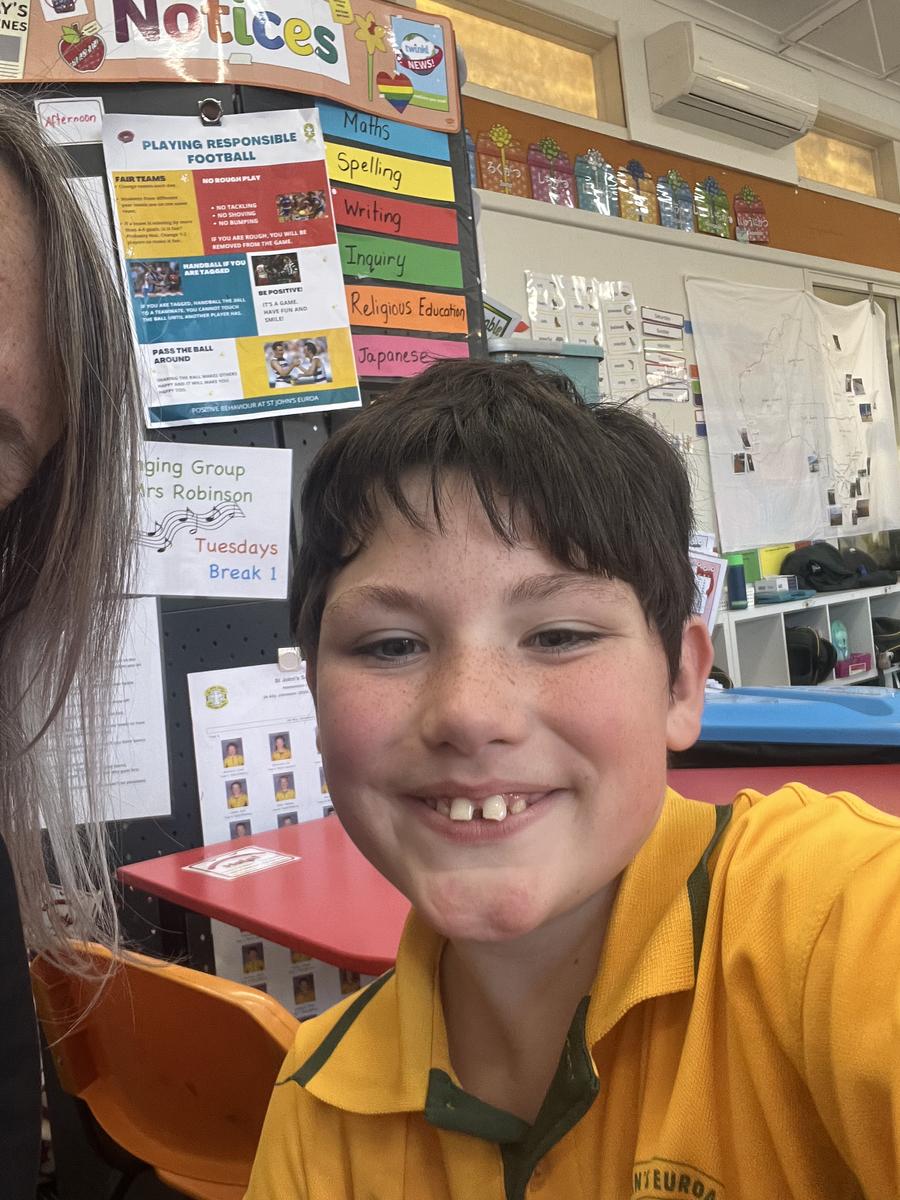
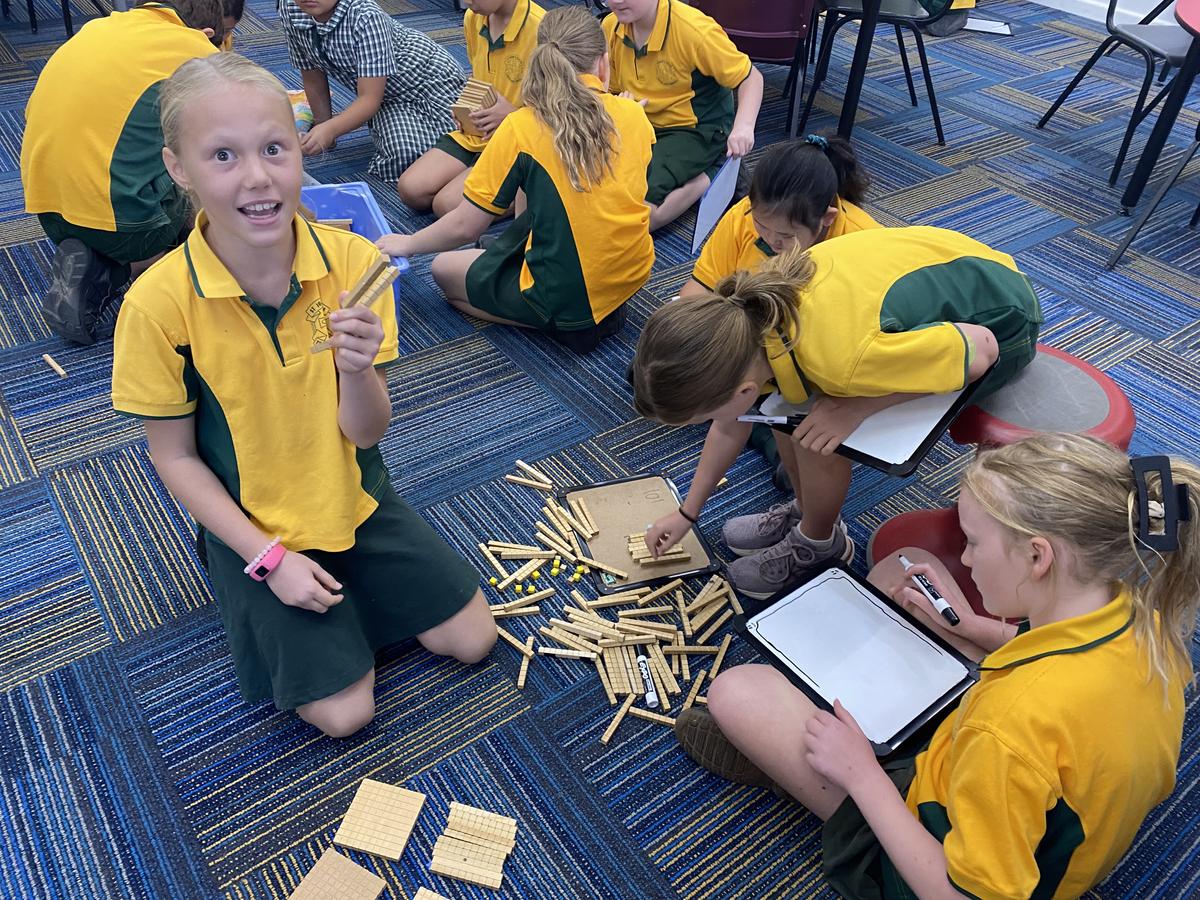





On Thursday 2nd May the Mathemagicians (Students working at a higher level and invited to participate) worked with Chris Buhler in the Mercy Centre where they created and designed mathematical challenges.
The year 3 to 6 students practised being self-directed, cooperative and resilient learners. Instead of solving mathematical problems, students investigated ‘how to’ create problems.
They needed to investigate the requirements, structure and components of ESTI Mysteries. (https://stevewyborney.com/category/esti-mysteries/). Students used their understanding of numbers to create their own. Congratulations to all students who persisted and created a finished product. We ran out of time to complete the second task. Something for next time!
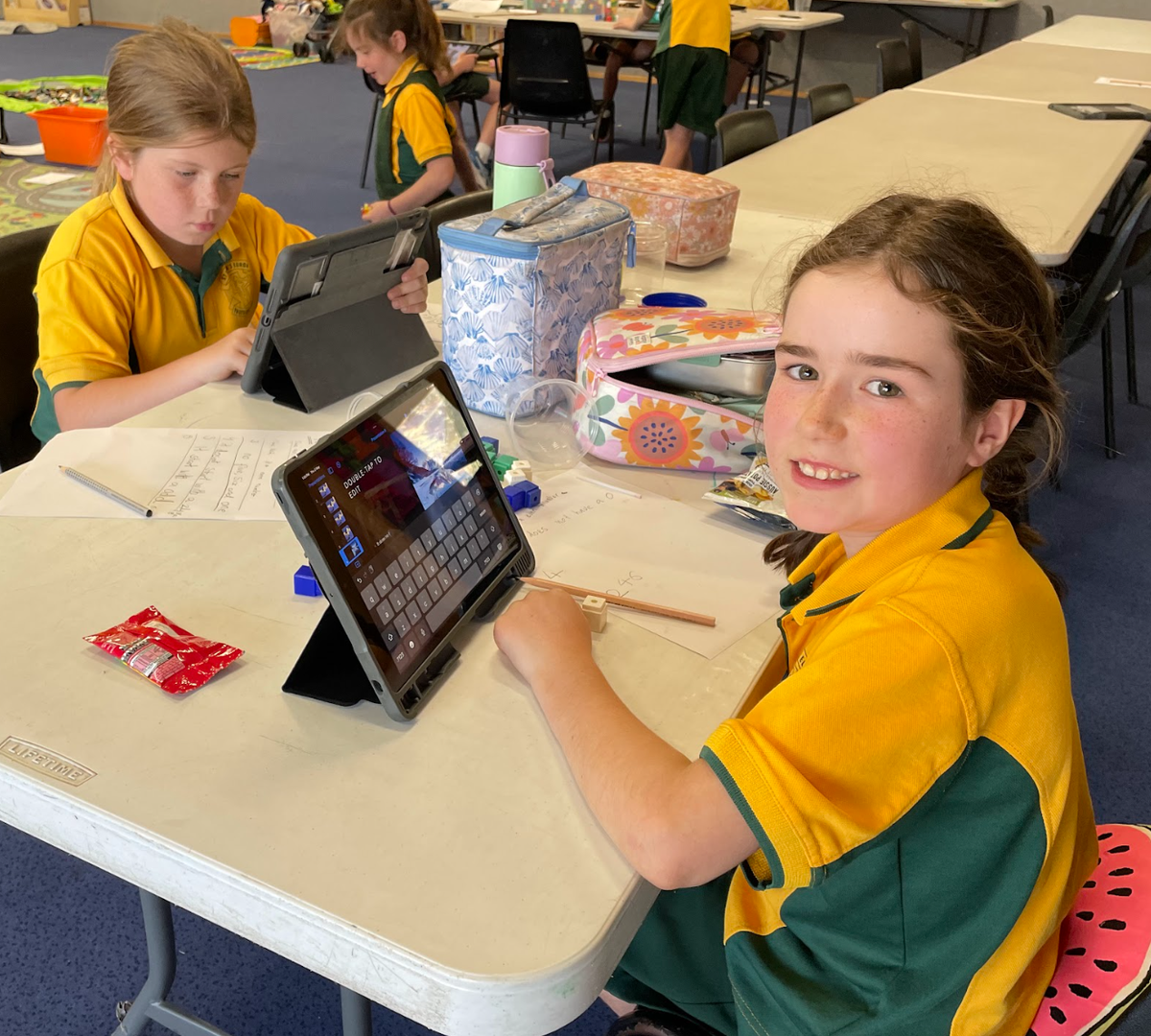
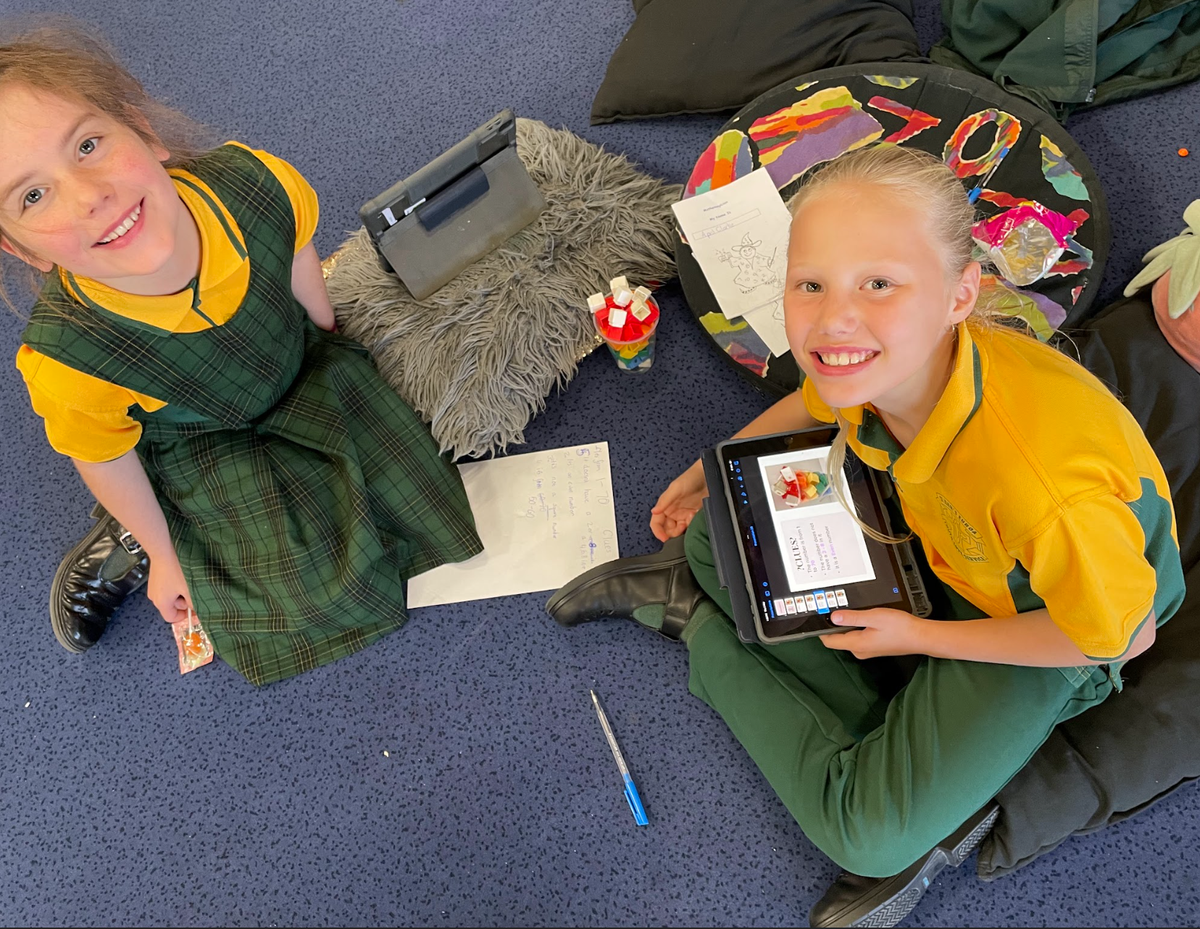
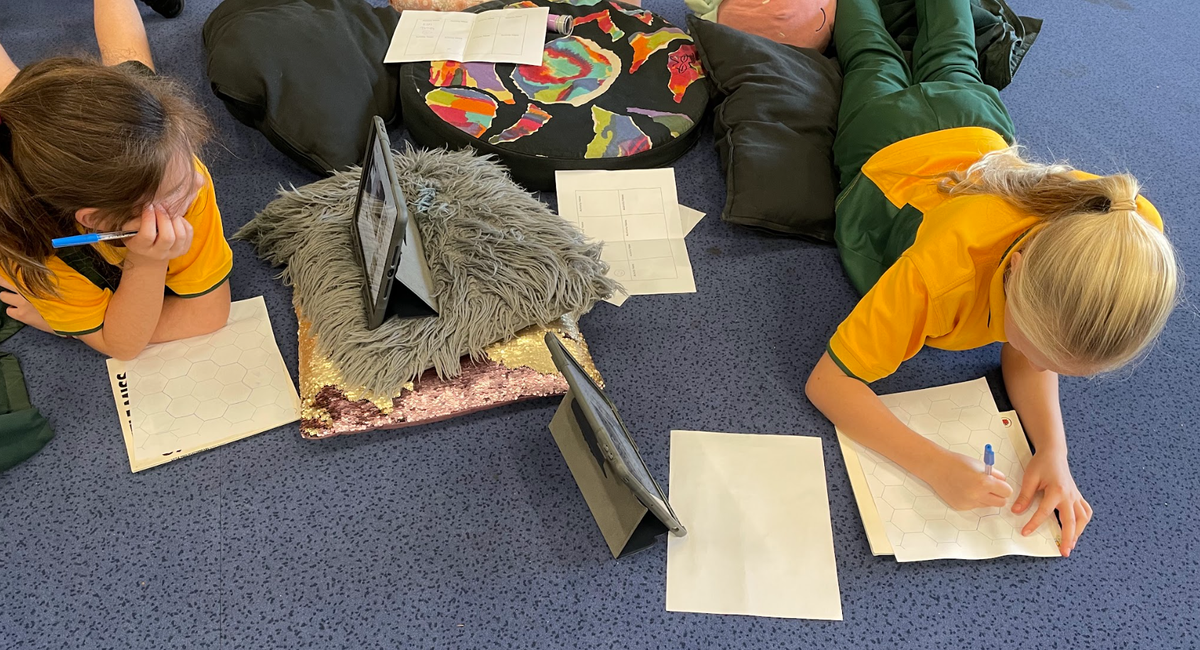



Taiko drumming, also known as "taiko" (太鼓) in Japanese, is a traditional form of Japanese percussion music that uses large drums known as taiko drums. This type of drumming is known for its energetic and powerful performances, incorporating a blend of music, choreography, and cultural elements. We were lucky enough to participate in the drumming session. Taiko drumming has a long history in Japan, with origins in religious rituals, festivals, and cultural events. It was traditionally used for ceremonies and communication.
A special thank you to Sensei. In Japan, a teacher is referred to as "sensei" (先生). This term is a respectful way to address teachers and other professionals such as doctors, lawyers, or artists. When speaking to or about your Japanese teacher, you can call them "[Last Name] Sensei" (e.g., "Tanaka Sensei") to show respect and acknowledge their expertise.
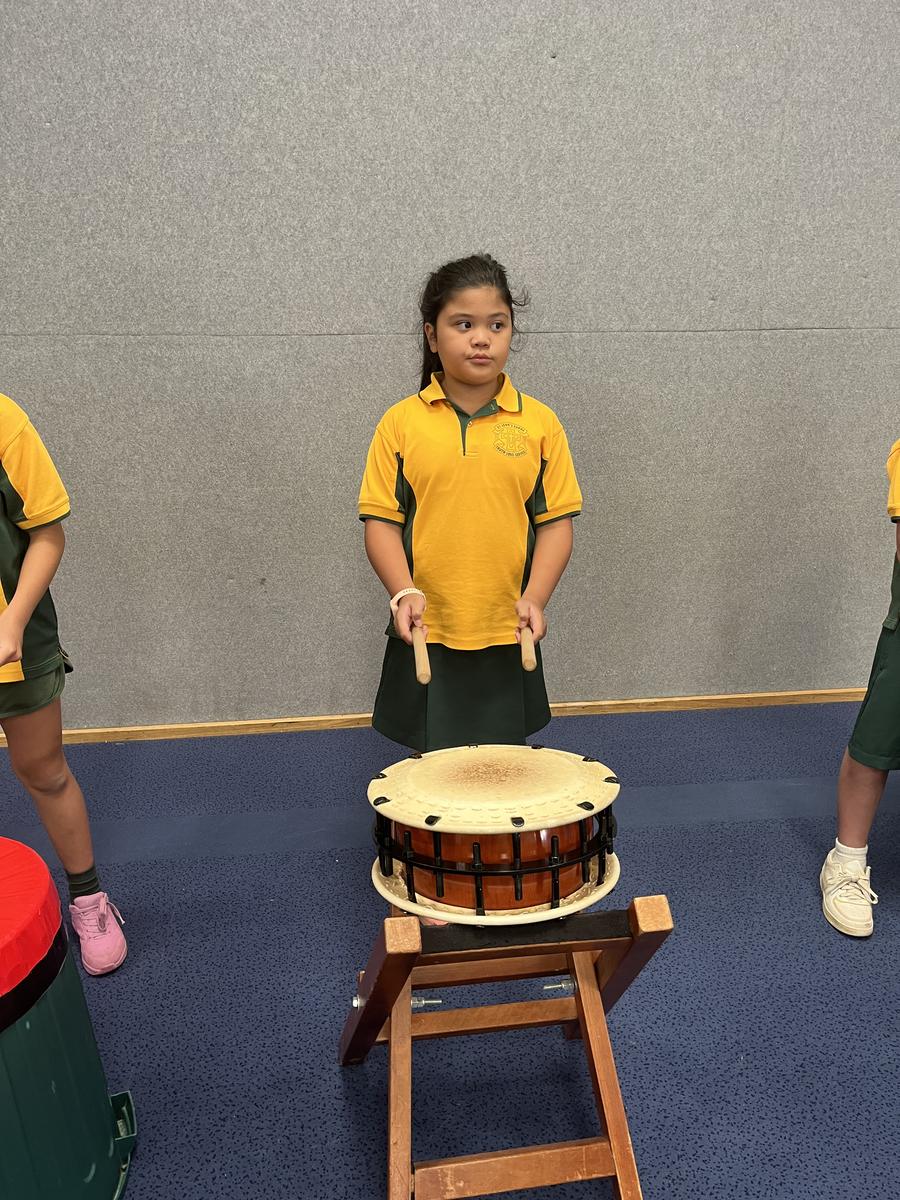
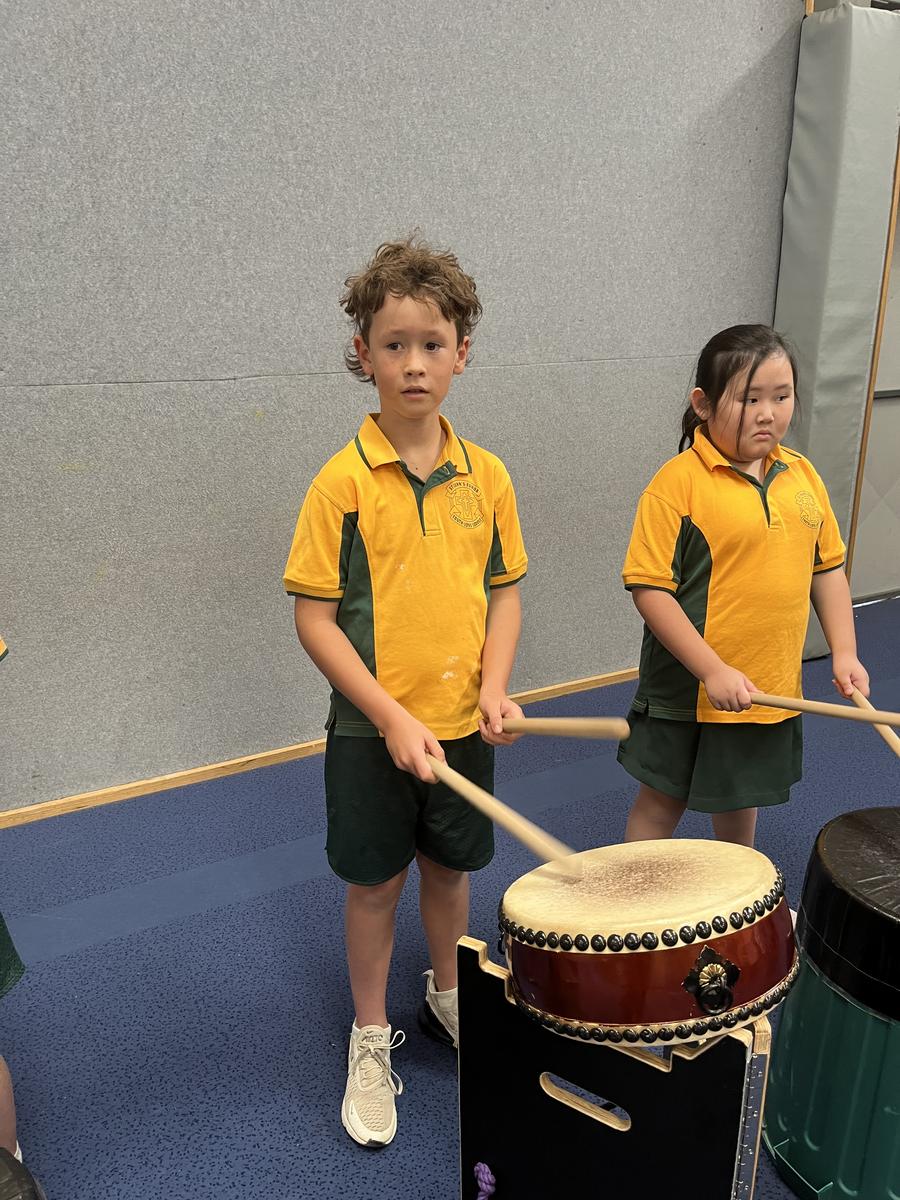
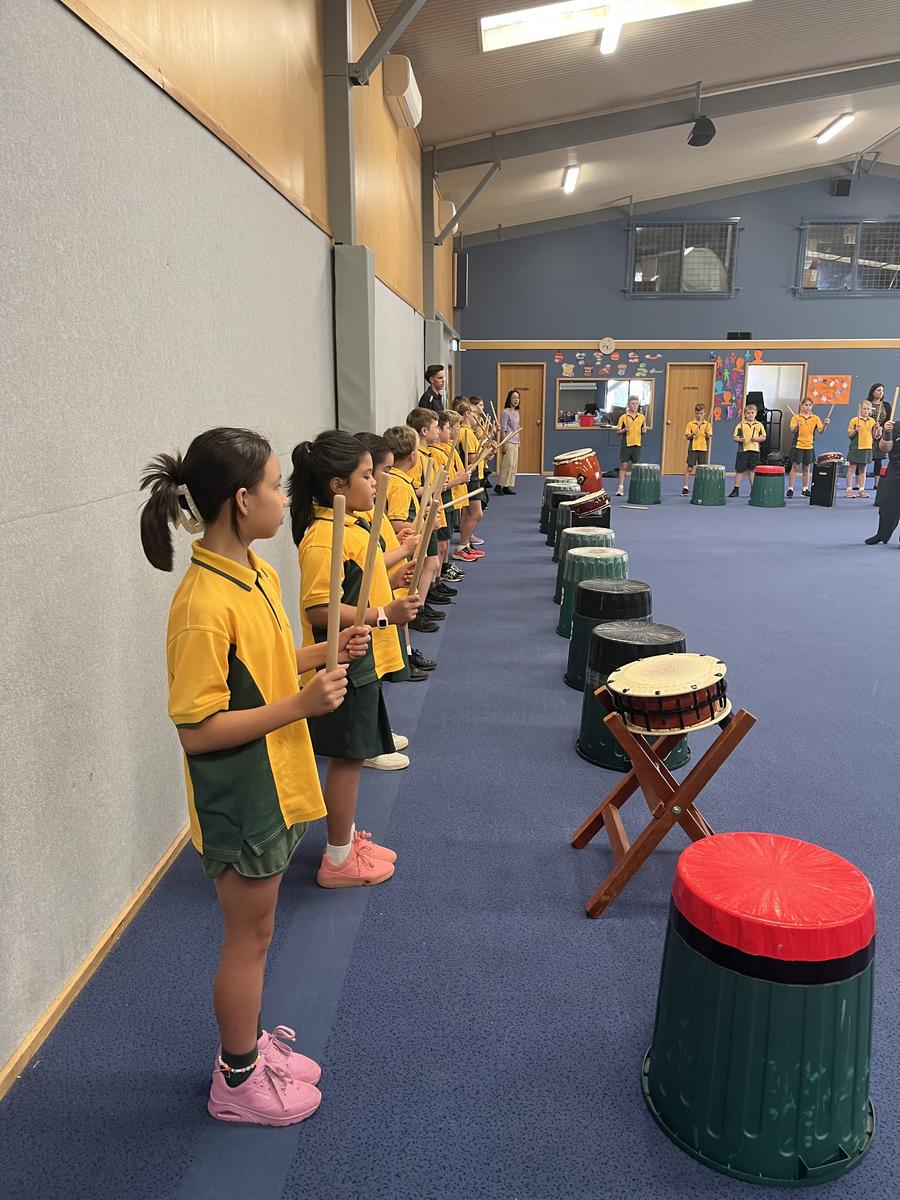
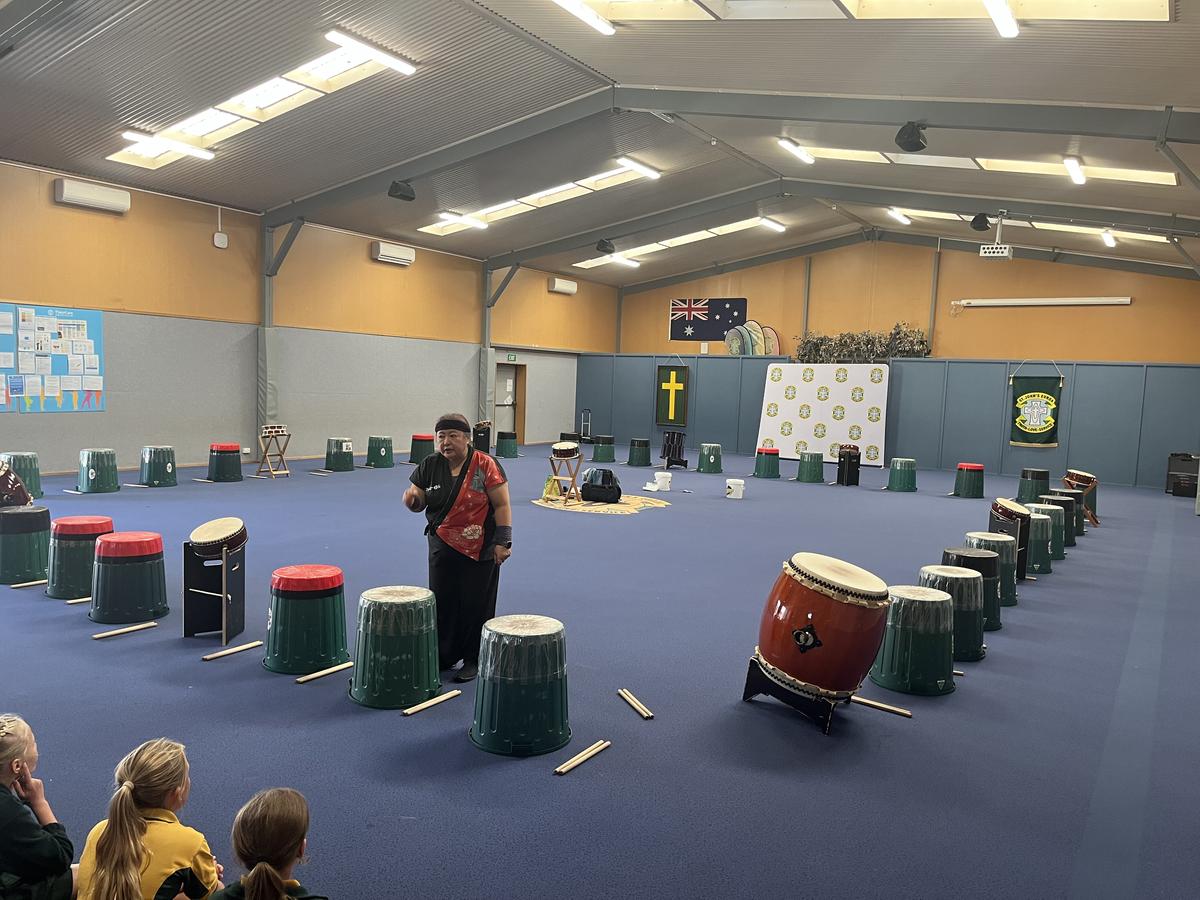




This term in our Inquiry lessons, we are focusing on the map of Australia! Students will explore the country's features and landmarks through activities that help them discover different places on the map.
Students will research both human and natural features of Australia and reflect on how people and places are connected. We'll also compare Australia with other continents to broaden their geographical knowledge.
These lessons help students understand place, space, and interconnection in a fun and engaging way. We're excited for the learning journey ahead!
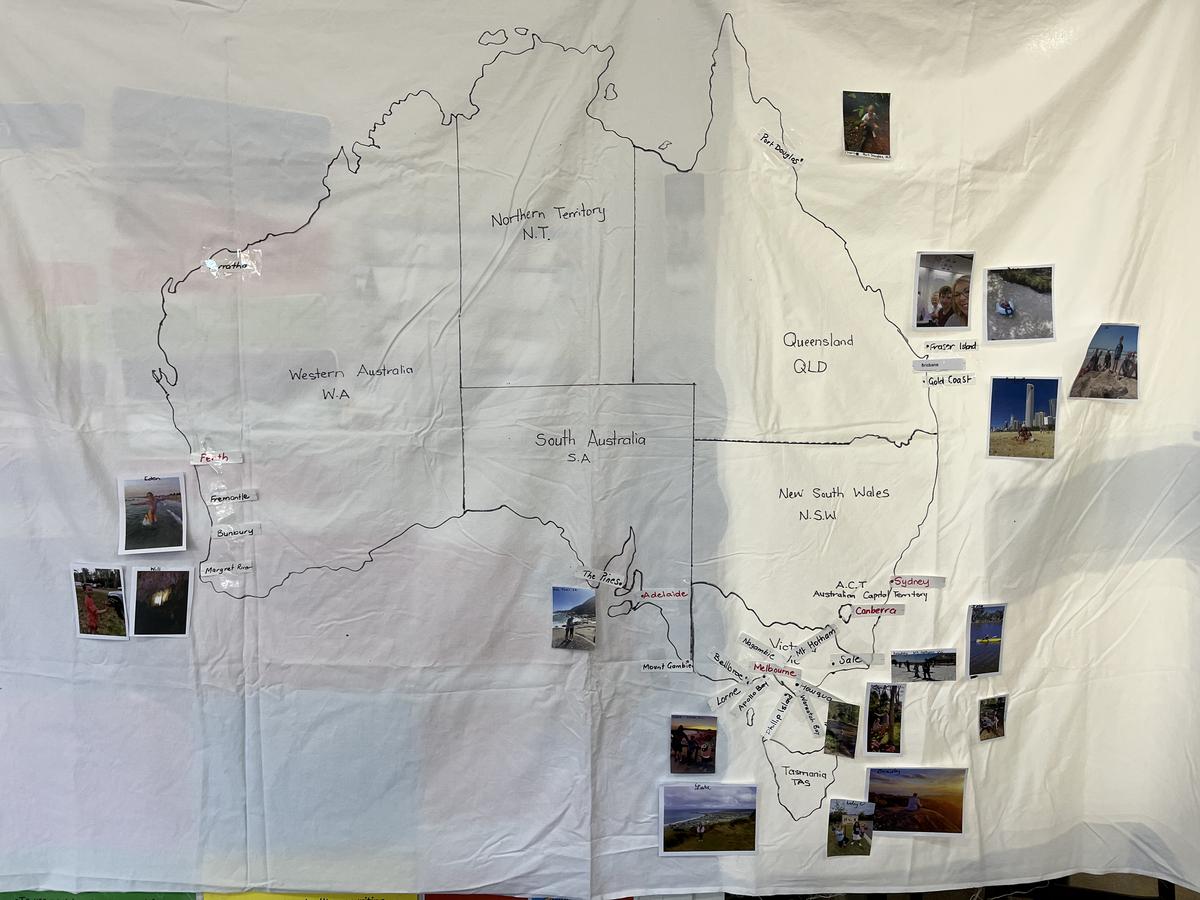
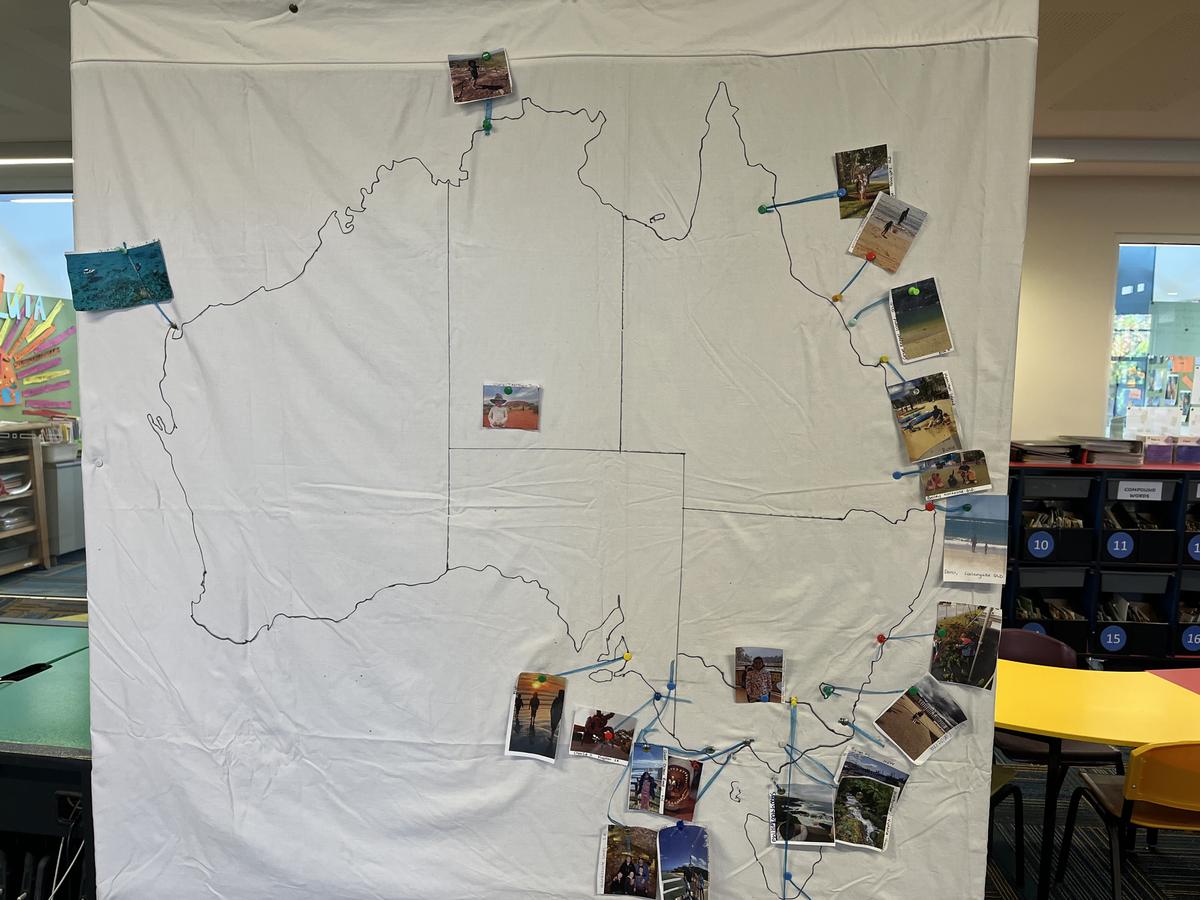


On Wednesday the 24th April our year 6 students lead us through our Anzac Day service. You may have also noticed an article in the Euroa Gazette highlighting how St John's commemorated fallen heroes with new art works.
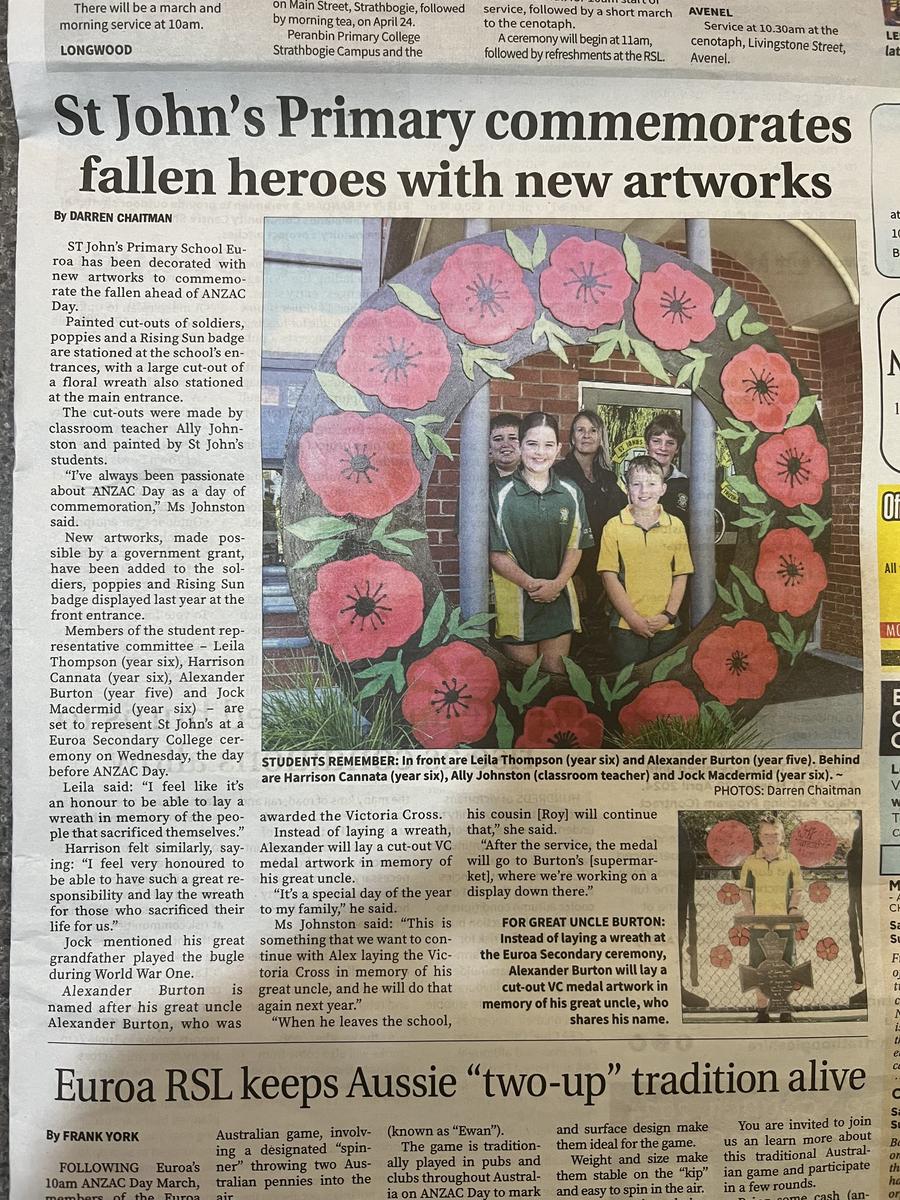

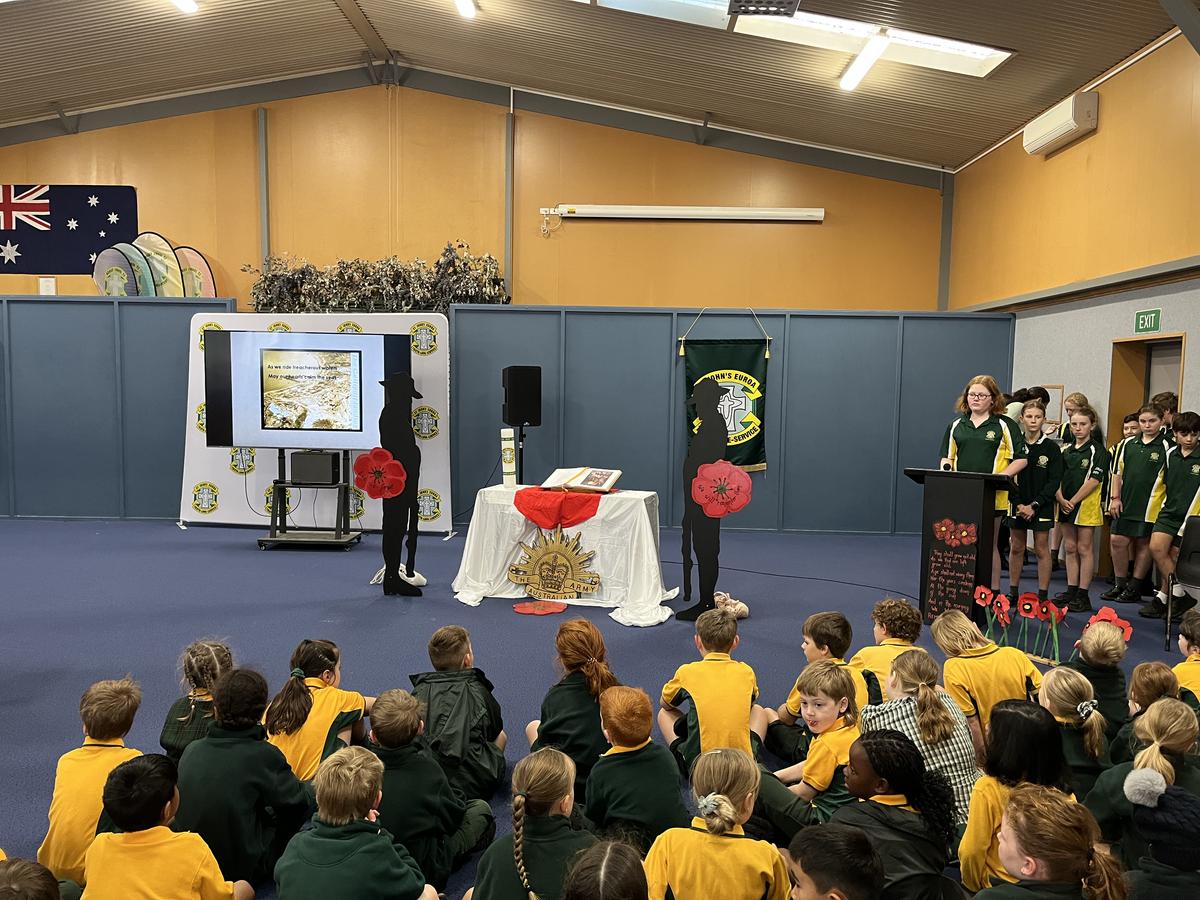
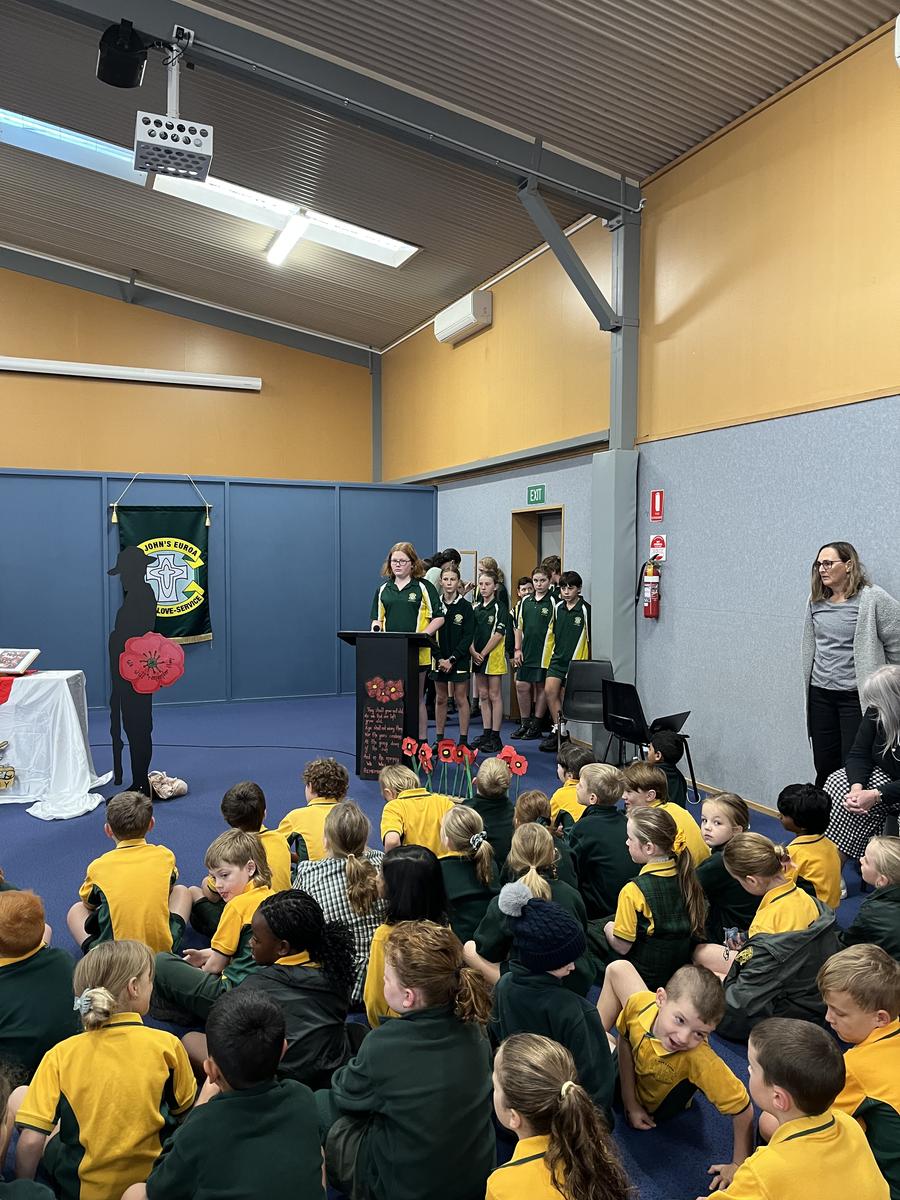
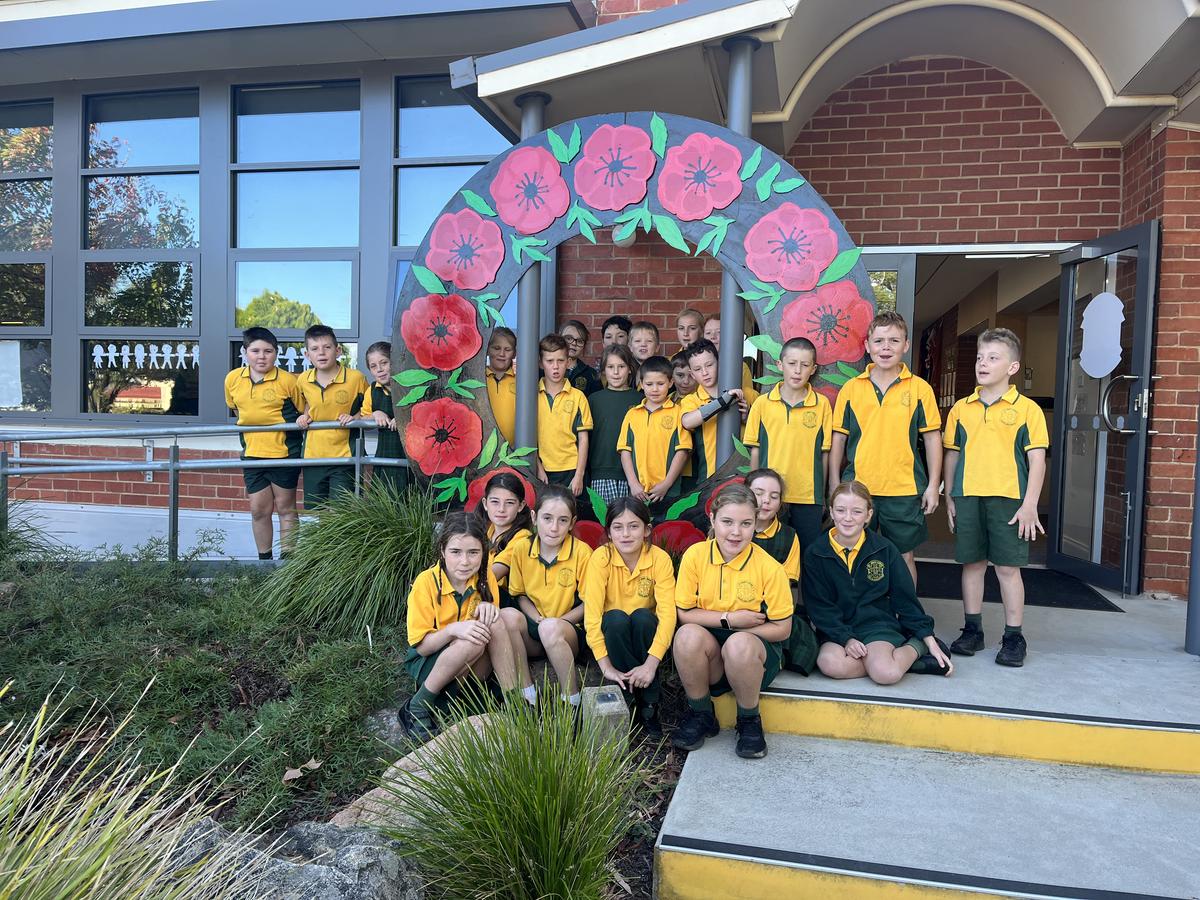





A great effort and a beautiful day for all our cross country competitors.
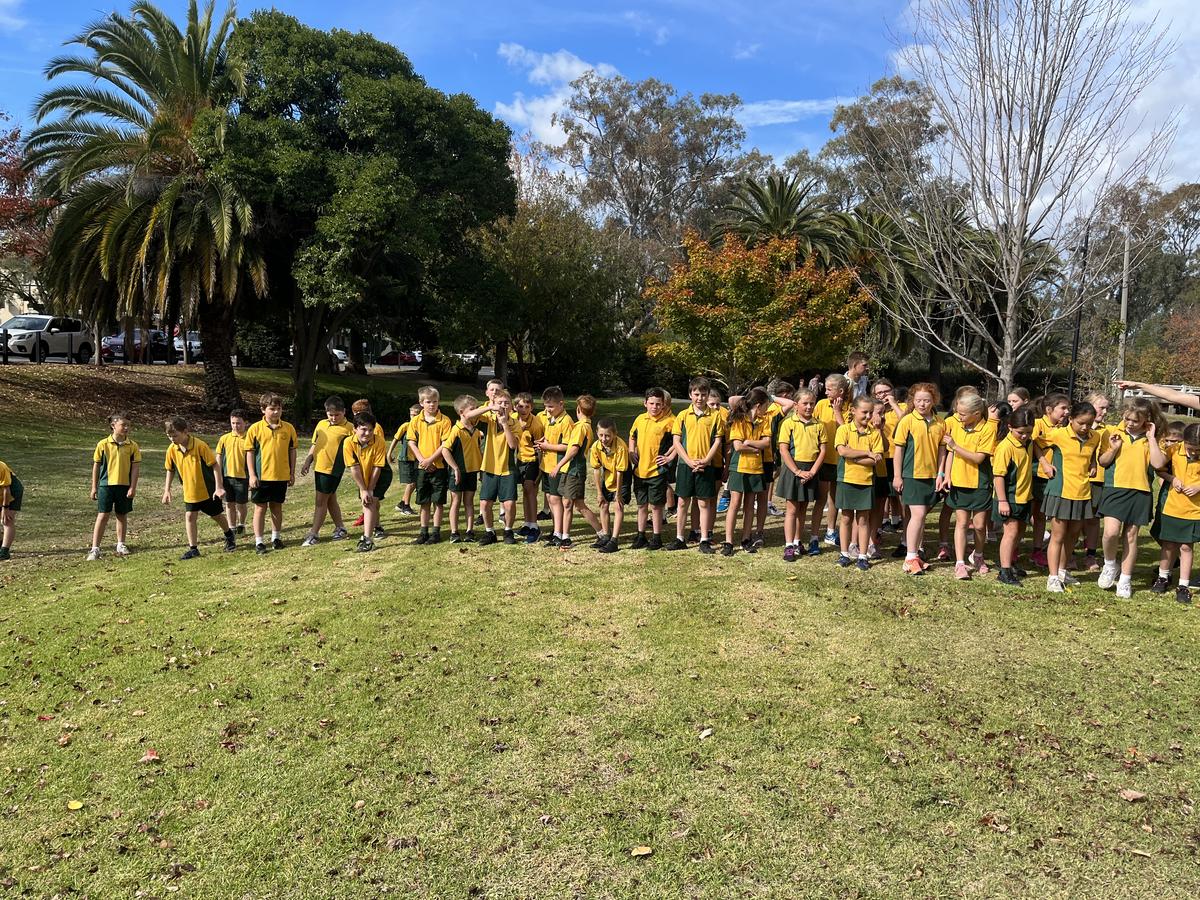

A special congratulations to Charli who represented St John's in the State Interschool Equestrian Championships over the holidays and had some fantastic results over the 5 days of competition. We are all so very proud of her.

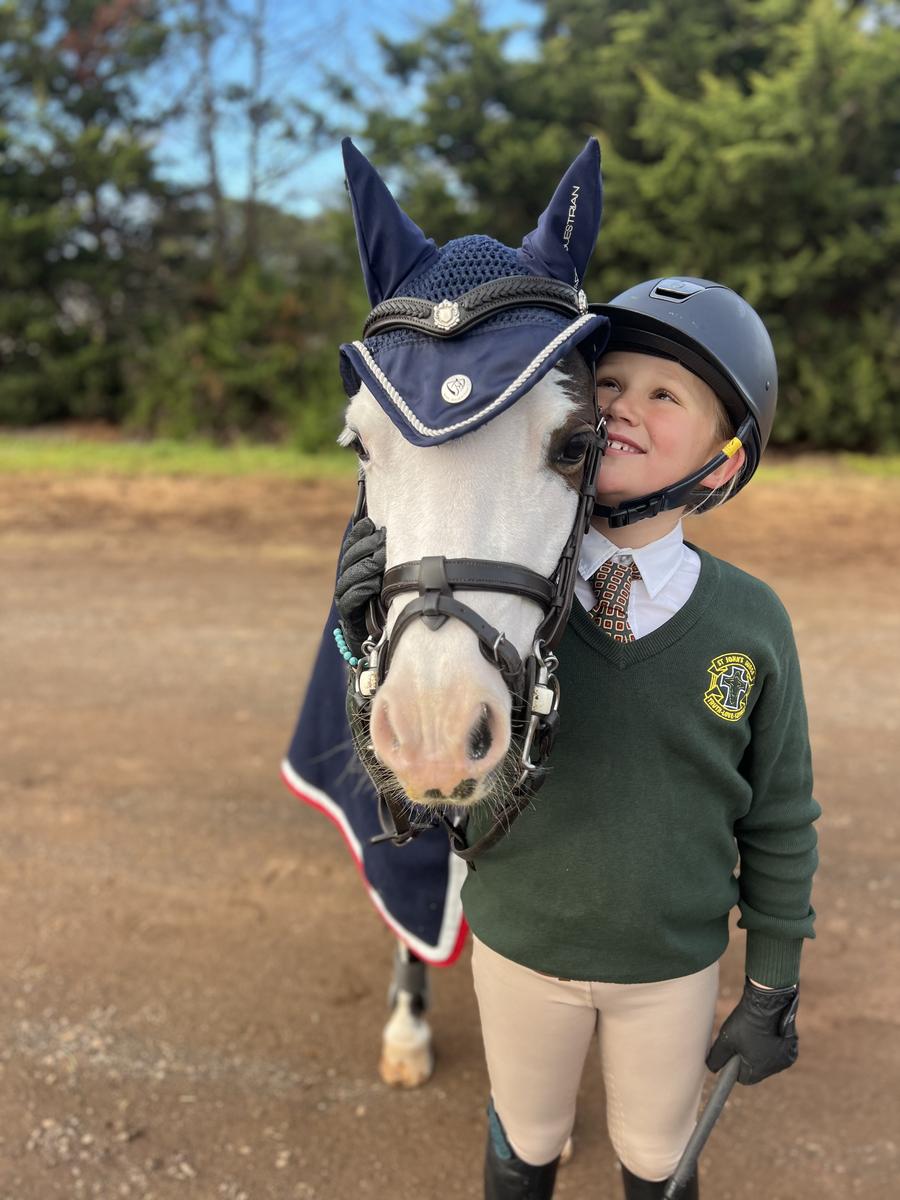




Please help us stick to the rules. This includes beaded bracelets, necklaces and smart watches.




You may have noticed the football posters around the school. Please help us to reinforce the guidelines for playing football at St John's.


Until Next time,
Ally, Rachel, Lisa, Keira and Nic